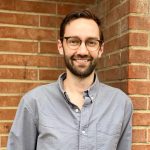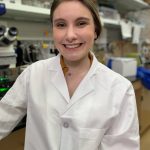Dr. Colin Basham received his PhD in Biomedical Engineering from the University of Tennessee, Knoxville, in spring 2023. His research there focused on how the material properties of inorganic nanoparticles impact their interactions with model cell membranes, which can dictate passive membrane translocation and nanoparticle-induced cellular toxicity. Dr. Basham joined the CCNTP in fall 2023 under the guidance of Dr. Alexander Kabanov, Dr. Charles Perou and Dr. Benjamin Vincent. His current work focuses on the development of lipid nanoparticles to deliver mRNAs for targeted cancer treatment.
Fellows and Projects
Fellows & Projects
Zhenzhen Chen
Dr. Zhenzhen Chen joined the CCNTP in 2022. She earned her Ph.D. in Material Science and Engineering at Clarkson University in 2022. Her research focused on the synthesis of functionalized Nano materials and their applications in biomedical area. Her current research focuses on immune recognition of triple-negative breast cancer stimulated by killing tumor associated bacteria with Ag0-drug nanostructures. Dr. Chen is working under the guidance of Dr. Juliane Nguyen and Dr. Eric Bachelder, with previous mentorship from Dr. Leaf Huang.
William Green
Dr. Will Green received his PhD in Nutrition in 2020 from the University of North Carolina at Chapel Hill. He joined Dr. Justin Milner’s lab in the Lineberger Comprehensive Cancer Center, where his research focused on differentiation programs of cytotoxic CD8 T cells in the context of infection and cancer. Dr. Green developed several new T cell specific cancer cells lines including those for pancreatic ductal adenocarcinoma, triple negative breast cancer, B-cell lymphoma, and others. Dr. Green joined the CCNTP in July 2023 under the guidance of Dr. Justin Milner and is associated with the lab of Dr. Alexander Kabanov, where his work focuses on harnessing nanoparticle delivery systems for in vivo TIL and CAR-T cell reprogramming therapy against solid tumors.
Son Long Ho
Dr. Ho joined the CCNTP in 2023 under the co-supervision of Dr. Zibo Li, Dr. Hong Yuan, and Dr. Alexander Kabanov. He received his Ph.D. in applied chemistry from Kyungpook National University, South Korea in 2015. During his postdoctoral fellowship in the Department of Chemistry, Kyungpook National University, Dr. Ho’s research focused on preparing lanthanide oxide nanoparticles for biomedical applications, such as MR and fluorescent imaging and neutron capture therapy. His recent work focuses on development of labeling methods for radiotheranostics by carbon dot.
Matthew Rich
Dr. Rich earned his PhD in Biomedical Engineering from the Joint Department of Biomedical Engineering at North Carolina State University and the University of North Carolina at Chapel Hill in 2023. His thesis work focused on how age and mechanical forces mediate the risk for idiopathic Osteoarthritis in advanced-aged individuals. In the summer of 2023, he joined the C-CNTP program under the mentorship of Dr. William Zamboni and Dr. William Polacheck. He will investigate the development of an organ-on-chip platform to study the pharmacokinetics of nanoparticle delivery to hypovascularized solid tumors.
Yuyan Wang
Dr. Yuyan Wang received her B.S. and Ph.D. in Biomedical Engineering from Georgia Institute of Technology and Cornell University, respectively. During her Ph.D. she was a fellow of the National Science Foundation Graduated Research Fellowship Program and her research focused on design and production of engineered glycoproteins for osteoarthritis treatment and drug delivery. Dr. Wang joined the CCNTP in 2023 and is currently working with Dr. Juliane Nguyen and Dr. Brian Miller, with prior mentorship from Dr. Leaf Huang. Her work focuses on the development of engineered yeast for colorectal cancer treatment.
Sophie Maiocchi
Dr Maiocchi joined the CCNTP as an Associated Fellow in 2022. She studies the vascular delivery of redox interventions and biologic therapies, such as proteins and mRNA, using polymeric nanoparticles coupled with cell-mediated delivery. Dr Maiocchi received her B.Sc.(Hons) in Nanotechnology and Ph.D in Pathology at the University of New South Wales, finishing in 2016. She trained for 2 years in the Thrombosis Group at the University of Sydney, after which she joined the Center for Nanotechnology in Drug Delivery at UNC in 2019, in the lab of Dr Edward Bahnson. Notable achievements include an NHLBI K99/R00 Career Development Award in 2022, entitled “Targeted drug delivery for the treatment of cardiovascular disease and its clinical complications”. In her time at UNC, she has received the Leon and Bertha Golberg Fellowship from the Curriculum in Toxicology and Environmental Medicine (2020), an NC TraCS 2K Pilot Award (2020) and the Burroughs Wellcome Fund Collaborative Travel Grant (2020), as well as two Young Investigator Awards at the 2020 and 2021 Annual Meetings of the Society for Redox Biology and Medicine. Her full bibliography can be found at: https://www.ncbi.nlm.nih.gov/myncbi/10InkyudBVOEqm/bibliography/public/.
Marta Overchuk
Dr. Overchuk earned her PhD in Biomedical Engineering from the University of Toronto in 2021. Her research focused on using light and light-activated molecules for precise cancer cell destruction through photodynamic therapy. She explored combining this method with nanomedicine to enhance chemotherapy delivery to tumors, aiming to reduce toxicity while maintaining treatment effectiveness. Her doctoral work earned her a Vanier Canada Graduate Scholarship, which recognizes Canada’s top graduate students who have demonstrated exceptional leadership and scholarly achievement. In March 2022, Dr. Overchuk joined Dr. Imran Rizvi’s lab at UNC-Chapel Hill as a Postdoctoral Fellow, where she applies her expertise in photochemistry to combat chemoresistance in gynecologic malignancies. She has co-authored 18 peer-reviewed publications, 2 invited perspectives, and holds one US patent.
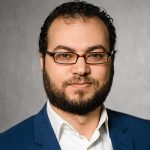
Mohamed Attia, Ph.D
Dr. Attia joined the C-CNTP in the laboratory of Dr. Alexander Kabanov in 2020. He received his B.S. and M.S. degrees in chemistry from Sohag University and Cairo University, Egypt, respectively. He earned his Ph.D. in pharmaceutical chemistry from Strasbourg University, France in 2016. The central theme of his research in cancer nanomedicine aimed to design smart vectors (i.e., polymer, lipid, and inorganic nanomaterials) to deliver a wide range of therapeutic/contrast agents and targeting moieties, and to fabricate multifunctional nanoparticles for combinatory therapy and theranostic applications using cutting edge technologies. During his training, he was engaged in the development of targeted and efficient nanoplatforms for both cancer bioimaging and therapy. His long-term research career goal is to facilitate the translation of nanoparticle-based therapeutics from the lab to the clinic.
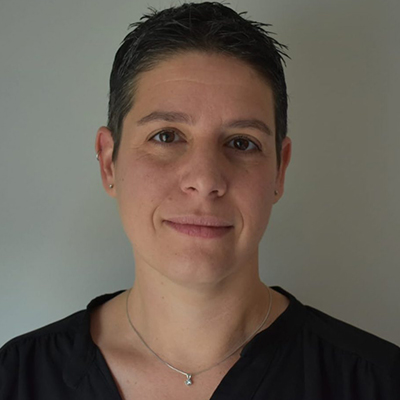
Inbal Hazkani BenDror, M.D.
Dr. Hazkani BenDror joined UNC in 2018. She received her M.D. from Ben-Gurion University of the Negev Medical School in 2006. She combines surgical experience in Otolaryngology with an interest in biomedical nanotechnology. She worked under the guidance of Drs. Andrew Wang and Alexander Kabanov on surgical implications for nanotechnology and head and neck cancer immunotherapy. Dr. Hazkani is currently continuing her training as a Pediatric Otolaryngology Fellow at Emory University School of Medicine.
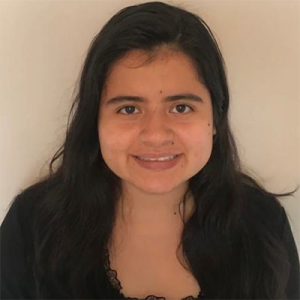
Daysi Diaz-Diestra, Ph.D.
Dr. Diaz-Diestra obtained her PhD in Physical Chemistry in 2019 from the University of Puerto Rico-Rio Piedras. Her research focused on regulatory control and biocompatibility assessment of nanoformulations used in medical devices. She joined the CCNTP in December 2020, where she worked under the guidance of Drs. Jenny Ting and Leaf Huang in Nanoparticle-Enabled Cancer Immunotherapy.Dr. Diaz-Diestra is currently a Biocompatibility Reviewer at NAMSA.
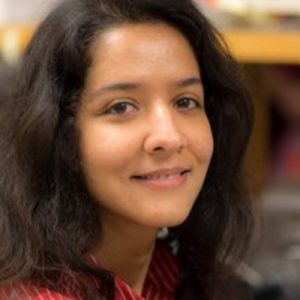
Lida Ghazanfari, Ph.D.
Dr. Ghazanfari earned her Ph.D. from Amirkabir University of Technology in 2014. She also holds MSc and BSc degrees in biomedical engineering from Amirkabir University of Technology. Ghazanfari joined the laboratory of Alexander Kabanov in 2016. Ghazanfari’s research interests span a wide range of topics in theranostic platforms with a direct impact on cancer nanotechnology, including intelligent control of nano-bio interfaces to develop new nano-based therapies for prevention/treatment of cancer, innovation in multifunctional nanocomposite integration of nano-sized drug formulations, efficient stimuli and remotely actuated drug delivery systems. She is currently working as an associate director at Charles River Laboratories.
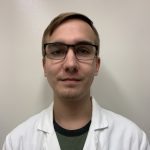
Samuel Galster, Ph.D.
Dr. Galster received his PhD in Medicinal Chemistry in 2021 from the University at Buffalo. His research focused on the synthesis of potential small molecule cancer therapeutics and the development of novel organometallic reactions. He then joined UNC to work under the guidance of Dr. Qisheng Zhang to develop small molecule modulators for the phospholipase C-gamma (PLC-g) isozymes. Dr. Galster was appointed to the CCNTP in July 2022 to expand upon these efforts with nanotechnology and to develop a high-throughput assay that combines a liposome-based enzymatic reaction with detection through surface-based mass spectrometry to identify selective PLC-g inhibitors.
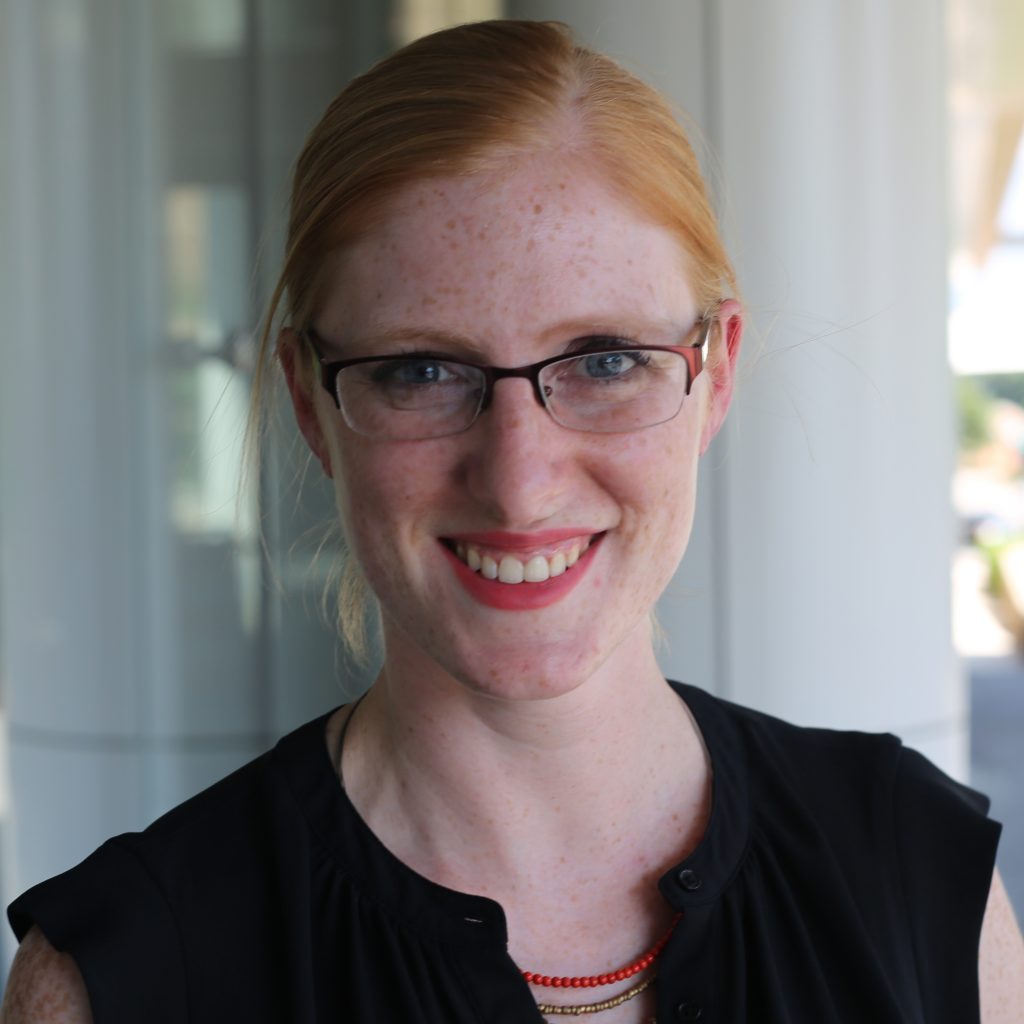
Emily B Harrison, Ph.D.
Dr. Harrison joined UNC in 2016 after receiving her B.S. from the University of Nebraska at Omaha and her Ph.D. in neuroscience at the University of Nebraska Medical Center. Harrison studied the role of microRNAs in traumatic brain injury under the guidance of Howard Fox, Ph.D. Her current research focus, under the guidance of Chad Pecot, M.D., is uncovering novel miRNA regulators of cancer metastasis and exploring therapeutic strategies for microRNA delivery and inhibition.

Juan Beltran Huarac, Ph.D.
Dr. Beltran-Huarac came to UNC in 2018. He earned his Ph.D. from the University of Puerto Rico in chemical physics and completed postdoctoral research in the areas of materials for nanotechnology and biomaterials at the University of Puerto Rico and in toxicology research at Harvard. While at UNC, he worked under the mentorship of Drs. Alexander Kabanov and Gianpietro Dotti on two projects “Remote Control of Therapeutic Protein Secretion via Magneto-Mechanic Actuation for Stem Cell Therapy” and “Cytoskeletal disruption-induced remote actuation for selective cancer treatment using magnetic field-activated iron oxides with different morphologies.” Dr. Beltran Huarac is now a tenure-track Assistant Professor in the Biophysics Program in the Department of Physics at East Carolina University in Greenville, NC.
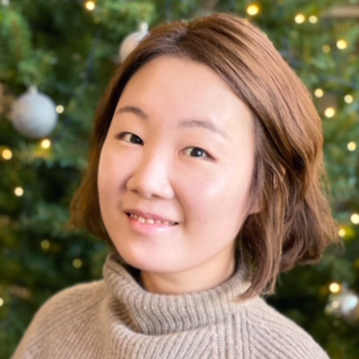 Hyesun Hyun, Ph.D.
Hyesun Hyun, Ph.D.
Dr. Hyesun Hyun received her PhD in the Department of Industrial and Physical Pharmacy at Purdue University. Her research focused on designing optimal surface chemistry of the NPs for protection from non-specific cellular uptake during circulation without compromising NP-cancer cell interactions. She joined the training program in July 2019 to work under Dr. Andrew Wang and Dr. Jonathan Serody. Her current research focuses on developing NP-based antigen-independent targeting approaches to enable tumor targeting for a wide range of cancers.
 Eleanor McCabe, Ph.D.
Eleanor McCabe, Ph.D.
Dr. McCabe received her Ph.D. in Molecular Medicine and Translational Science at Wake Forest University in 2018. She joined the training program in 2019 and worked in the laboratory of Dr. Rihe Liu. Her research project will focus on development of specialized mRNA‐loaded lipid nanoparticles (LNPs) for liver metastasis prevention and immunotherapy treatment. Dr. McCabe is currently a Translational Medicine Scientist at Locus Biosciences in Morrisville, NC. Dr. McCabe’s role as a full-time Scientist will involve planning and implementing pre-clinical oncology studies
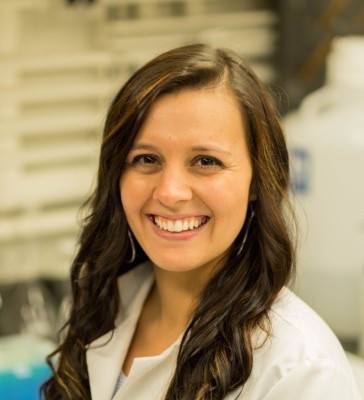 Amber Moody, Ph.D.
Amber Moody, Ph.D.
Dr. Moody obtained her PhD in 2018 from the University of Tennessee in Physical Chemistry where her research focused on developing a detection method for biomarkers of neurodegenerative diseases using Raman spectroscopy. She followed this with a postdoctoral fellowship at the FDA primary research facility, the National Center for Toxicological Research (NCTR). At NCTR she used immunohistochemistry to study the toxicity of general anesthesia on the developing brain. She joined the T32 Cancer Nanotechnology program in August 2019 to work under Dr. Paul Dayton and Dr. William Zamboni. Her research combined pharmacokinetics and ultrasound imaging to modulate the dense tumor matrix in order to increase the tumor delivery and efficacy of nanoparticles. Dr. Moody is currently employed with Scientific Research Corporation in Charleston, South Carolina, as an Operations Analyst.
 Edikan Archibong Ogunnaike , Ph.D.
Edikan Archibong Ogunnaike , Ph.D.
Dr. Ogunnaike received her Ph.D. at the University of South Florida from the Department of Chemical and Biomedical Engineering. She joined UNC in 2018 and worked under the guidance of Drs. Gianpietro Dotti and Frances Ligler in the area of nanotechnology and cell engineering to develop a smart biomaterial which can be used in the delivery of engineered t-cells against solid tumors. Dr. Ogunnaike is currently working under the guidance of Dr. Alexander Kabanov to develop hydrogel to sustain the delivery of CAR-T cells to tumors.
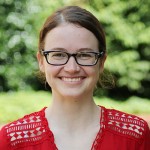
Lauren Price, Pharm.D.
Dr. Price completed her Pharm.D. at the University of Washington. She was briefly appointed to the training program in 2017 under the mentorship of Dr. William Zamboni, Ph.D. and Dr. Alexander Tropsha, Ph.D. Dr. Price’s research focused on evaluating the efficiencies and deficiencies of nanoparticle tumor disposition. Following her departure from the program, Dr. Price completed postdoctoral work in the laboratory of Dr. William Zamboni and continued to interact with the program as a teacher in the 2018 Carolina Nanoformulation Workshop. Dr. Price is now a Staff Fellow in the office of Clinical Pharmacology at the US Food and Drug Administration.
Zach Rodgers, Ph.D.
Dr. Rodgers is originally from Ohio where he earned a B.S. in Chemistry from Youngstown State University studying C-H insertion chemistry on furanose platforms with Dr. Peter Norris. Rodgers later graduated from the University of North Carolina at Chapel Hill with a Ph.D. in organic chemistry under the guidance of David Lawrence, Ph.D. During this time, Rodgers worked on near-infrared light-mediated drug release for the treatment of rheumatoid arthritis and cancer.
During his training, Dr. Rodgers primary work focused on NPs coated with cancer cell and Mycobacteria membranes as vaccination scaffolds. He also developed, characterized, and screened the efficacy of cancer and BCG membrane coated NPs as melanoma vaccine platforms. In vivo pilot studies on the formulations show promise, and he has trained and will correspond with another postdoctoral researcher who will continue this promising research. They, we hope to fully optimize this NP vaccine system and publish within the next year.
Dr. Rodgers is now an Assistant Professor at Westminster College in New Wilmington, PA. He will run a research laboratory with a focus on developing photochemical methodologies and catalysts for use in biomaterial lithography and complex block co-polymer synthesis. The latter project will be dedicated to developing α-functionalized co-polymers for self-assembling nanoparticle systems with applications in drug delivery. The nanotechnology experience gained during the C-CNTP will aid him in accomplishing this research. He will also be developing a Polymer and Nanotechnology course for advanced chemistry students at the college.
Adam Sandor, PhD.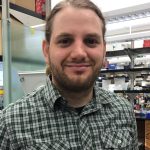
Dr. Sandor obtained his PhD in Immunology in 2018 from the University of Colorado- Anschutz Medical Campus. His research focused on using flow cytometry, intravital multiphoton imaging, and RNA sequencing to better understand the mechanisms that are involved in the recruitment and activation of immune cells within inflamed islets during type 1 diabetes. He joined the Carolina Cancer Nanotechnology T32 training program in July 2019 working under Dr. Jenny Ting and Dr. Kristy Ainslie. His current research focuses on using acetylated dextran microparticles to deliver immune activators to intratumoral myeloid cells to promote an inflammatory milieu within the tumor to increase intratumoral T cell activation and tumor clearance in vivo.
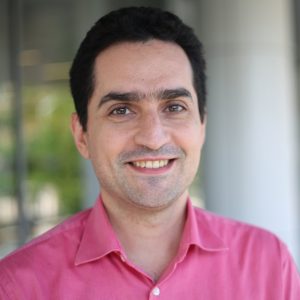
Shahin Sendi, M.D., Ph.D.
Dr. Sendi joined UNC in 2017. He received an MD from Tehran University, Iran, an Mphil in Infection Biology from Karolinska Institute, Sweden and a PhD in Molecular Cell Biology from UNC Charlotte in 2013 where he worked on molecular pathogenesis of HCV. He has been working on the molecular pathogenesis of liver diseases. He is currently working under the guidance of Drs. Andrew Wang and Alexander Kabanov to explore nano-particle based treatment of liver metastasis.
Ruijie Teo
Dr. Teo completed their undergraduate studies at the California Institute of Technology under the mentorship of Dr. Harry Gray and Dr. William Goddard. They obtained a Ph.D. degree in chemistry at Duke University, along with a Certificate in College Teaching and a Certificate in Structural Biology and Biophysics. Dr. Teo’s dissertation work in the Beratan group focused on understanding biological electron transfer and its relation to redox signaling. Thereafter, they joined the Tieleman group at the University of Calgary where they researched drug-lipid interactions and viral capsid dynamics. Upon joining the C-CNTP T32 program, they worked under the guidance of Dr. Alexander Tropsha and Dr. Alexander Kabanov on developing synergistic drug combinations for drug delivery using machine learning. Dr. Teo is now utilizing a chemistry background for drafting and prosecuting patent applications.

Pamela Tiet, Ph.D.
Dr. Tiet is originally from California where she earned her B.S. in Bioengineering from the University of California, Berkeley. She later graduated from City of Hope with a Ph.D. in Biological Sciences with an emphasis on nanotechnology under the guidance of Jacob Berlin, Ph.D. During this time, she worked on developing a biosensor to detect Staphylococcus aureus using oligonucleotide-functionalized gold nanoparticles and on the synthesis of silica-coated paclitaxel nanocrystals for the purpose of loading onto tumor-tropic neural stem cells for targeted drug delivery. During her time with the NIH Carolina Center for Nanotechnology Training Program as a T32 postdoctoral fellow at UNC, she focused on cancer immunotherapy under the mentorship of Kristy Ainslie, Ph.D. and Jenny Ting, Ph.D. Dr. Tiet is now an Associate Scientist at United Therapeutics.

Elizabeth Wayne, Ph.D.
Dr. Wayne completed her Ph.D. at Cornell University in biomedical engineering in 2016 and earned her B.A. in physics from the University of Pennsylvania in 2009. Macrophages are a natural choice for gene delivery. Macrophages are a member of the innate immune system whose functions include phagocytosis of cellular debris and initiating the inflammatory response including the recruitment of other immune cells. Macrophages are found in large numbers in solid tumors and in other diseases where inflammation is prevalent, such as neurodegenerative disease and atherosclerosis.
Previously published work in the Kabanov group has demonstrated macrophages’ ability to horizontally transfer genes to ischemic muscle cells and that this activity is enhanced within the presence of pluronic block copolymers. Preliminary research shows that macrophages are also capable transferring genetic material to cancer cells. Wayne’s central goal is to develop a macrophage-mediated nonviral delivery system to deliver genetic material to the tumor environment.
Wayne was named a 2017 TED Fellow and her TED Talk can be viewed at https://www.ted.com/speakers/elizabeth_wayne. She is an advocate for women in academia. She co-hosts the PhDivas podcast and is featured in the Super Cool Scientists: Women in Science Coloring Book. She has her own website at https://www.lizwaynephd.com. Dr. Wayne is now a tenure-track Assistant Professor at Carnegie Mellon with joint appointments in the Departments of Biomedical Engineering and Chemical Engineering.
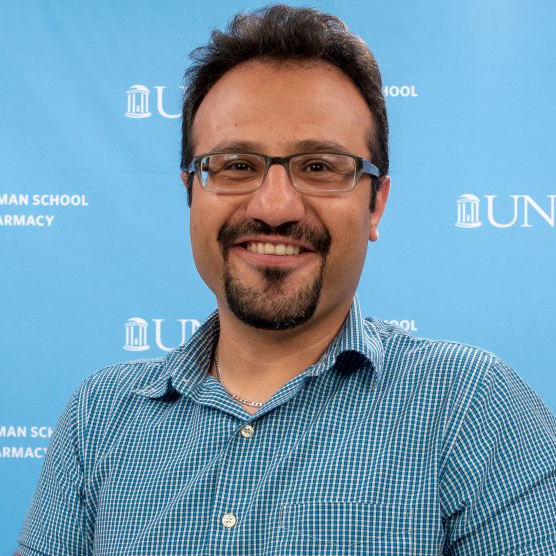
Mostafa Yazdimamaghani, Ph.D.
Yazdimamaghani joined UNC in 2018. He received his B.S. from Isfahan University of Technology and his M.S. from the University of Tehran. He earned his Ph.D. from the University of Utah in the area of Pharmaceutics and Pharmaceutical Chemistry. He is working under the guidance of Drs. Jon Serody and Chuck Perou. His current work is harnessing the power and specificity of the immune system by cancer immunotherapy to treat lung cancer utilizing neoantigens and nanotechnology.




